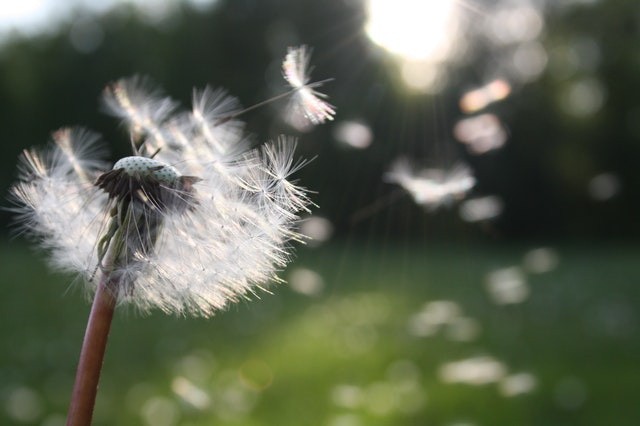According to experts, global warming contributes to the deteriorating symptoms of one of America's most frequent allergies, hay fever.
If you suffer from seasonal allergies, you're probably familiar with the itching, sneezing, and watery eyes that goes along with them.

Studies Involving Climate Change and Seasonal Allergies
Pollen and dust mites, two common springtime allergies, may cause these cold-like symptoms, but a new research reveals that global warming is extending the hay fever season, according to Martha Stewart.
According to a study published in the Proceedings of the National Academy of Sciences, the lengthening of the allergy season is being caused by global warming.
The National Allergy Bureau's measurements of airborne pollen and mold in the United States and Canada from 1990 to 2018 were used by the researchers to arrive at their conclusions. Between those years, employees at 60 locations throughout both nations manually tallied the readings.
Over the course of 28 years, pollen levels throughout the country rose by 21 percent, according to the new research. Texas and the Midwest had the most significant rises.
Study author Dr. William Anderegg of the University of Utah said in a statement that the significant correlation between warmer weather and pollen seasons gives a crystal obvious illustration of how climate change is already harming people's health.
How Climate Change Influence Plants' Internal Clockwork
Experiments on greenhouse gases have demonstrated that a rise in temperature and CO2 in the atmosphere may lead to an increase in the production of pollen.
According to the new research, pollen season now lasts from March through September, roughly 20 days sooner than it did in 1990, when it lasted from mid-June to mid-July.
Warmer temperatures influence plants' internal clockwork to start generating pollen earlier in the year, which scientists think is the result of climate change.
More than two dozen climate models have revealed that the prolongation of the hay fever season is at least partially due to global warming.

Climate Change is Responsible for Extended Pollen Season
According to the research, climate change is to blame for the longer and more pollen-filled pollen seasons that have occurred since 1990.
The research revealed that pollen seasons have increased by 20 days since 1990, and pollen concentrations have risen by 21%. Human-caused climate change was shown to be responsible for half of the extended pollen seasons and 8% of the overall rise in pollen concentrations.
Aaron Bernstein, interim director of Harvard T.H. Chan School of Public Health's Center for Climate, Health, and the Global Environment (Harvard Chan C-CHANGE), claimed in a February 17, 2021 Verywell Health article that allergy medicines may help many people with pollen allergies.
However, Bernstein, who was not involved in the research, pointed out that increased pollen exposure, when coupled with other climate change-related issues, may be a major concern for those who are unable to get medications or who have severe asthma.
While the longer growing season means more pollen, it may also lead to heat waves and worsened air pollution, both of which can have a negative impact on human health. Asthma and pollen allergies may be exacerbated by a rise in insect-borne illnesses, as well as an increase in bug populations that can decimate forests and spark wildfires.
Related Article : Your Baby's First Poop May Give Insight on His Allergies
For more news, updates about climate change and similar topics don't forget to follow Nature World News!
© 2026 NatureWorldNews.com All rights reserved. Do not reproduce without permission.





